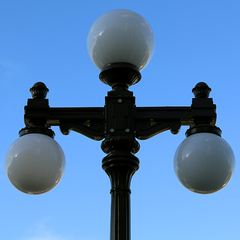What do YOU consider when pricing old electronics?
5 hours ago, TrueElite said:
With this in mind, what do you consider when buying and selling your old devices?
I've never sold my old electronics, either I use them till they break, give them away to relatives or people who specifically want them. But most of that is that shipping in Canada is an extreme rip-off. If it can't be picked up locally, forgetaboutit.
Now as for what to buy.
I've rarely bought computer hardware on eBay. I've bought old console game carts, one of them wound up being a repro (counterfeit.) I had to go through several game consoles to get one that works.
So with that said.
1. eBay is a good way to get a reference point for the value, but only if you're looking at BIN (Buy It Now) value, not auction value. Auction values are always initially set low to lower the sellers cost, and if they set a reserve, it's the same as having a BIN on it, so they may as well just BIN it if that's what they want to get for it.
(full disclosure, I used to work for eBay.)
2. Don't list your items next to counterfeit items. Make sure you always use a new photo when you list old items. Never use a stock photo, and never reuse a photo if the listing fails. The reason is that people will steal the photos to sell their own fake/poorer-condition items, and use it to take down your listing. Make sure to watermark your photos as well. If you're selling stuff that is new, then you can show the photo of the item, sealed, and the receipt along with the stock photo. If you're selling NOS (New, Old stock), then you can use eBay's provided stock photo if taking a picture of the item itself would break the seal on the item. Previously owned items with any wear on it or an unsealed box should never use a stock photo. If it's unsealed, take a photo of the unboxed item.
3. Don't spam with unrelated keywords when listing online. Some people have a penchant for trying to get attention by loading their listing or title up with words that are not relevant. Like if you were selling an EVGA nVidia GPU, then you'd say "EVGA nVidia GTX 1080 8GB, NEW" if the item is the GTX 1080 and New. If you put more than one brand in the title, you'll get the listing pulled eg "MSI EVGA ASUS GTX 1070 1080 AMD RADEON 5700 XT 8GB 12GB" . Never have brands that are not present in the title or body of the listing, EVEN if you are making a comparison. Making the comparison is actually worse, because then it gets pulled for "Keyword spam - Comparison".
That covers eBay in general.
Now, consider the collectability of an item.
Most computer hardware is not collectible, because it wears out. However "intact" hardware is. This is hardware that has not been used, or is in the original packaging. Anything that can be used to build a "DOS gaming machine" or a "Win98 gaming machine" has slightly more value to it. There's some rare hardware, particularly music and mpeg cards that are hard to acquire, and even harder to repair. I'd kill for Roland to make new MT-32's, or make a USB-midi/usb-c audio model, but alas Roland can't figure out that vintage 80's kit is hot right now. The first person who makes a FPGA MT-32 would probably fill a niche needed by vintage DOS gamers at least, let alone music. Vintage Voodoo2 and Voodoo3 cards are collectible if you're into the old 3DFX games.
Aside from that most PC hardware after 1999 to 2008 has no premium value. It's primary of interest to people repairing old equipment, or trying to squeeze an upgrade out of a frankenbox.
Non-PC hardware, eg Apple kit, has much higher value as there is a collectability to it, and they are stylish. However it may just end up being a prop in film or TV show rather than be used.
Home theater equipment doesn't hold value, but it also doesn't age as poorly. Like if you bought a home theater-in-a-box 20 years ago, it still does surround sound. But a newer one supports all the current digital audio codecs, HDMI, and 4K/UHD, etc. You can reuse speakers forever though, especially ones that have been built into the wall/ceiling. So people typically use the systems until they replace their entire setup in phases. So something like TV -> HT -> DVD/BD Player ->HDTV/Cable box/nVidia Shield, etc.
Previously owned LCD panels (monitors or televisions) have some value to them, but it REALLY REALLY depends on local purchase. You are not going to sell a 24"+ LCD panel to someone and mail it to them. Chances are you might not even have the original box, and the shipping will cost more than the item. So better to just hawk those on Craigslist/Kijiji, or set "local pickup only" as the shipping option on eBay.
Same with entire built Chassis/Laptops. Unless you happen to have kept the box, you're not going to ship one wrapped just in bubblewrap. Computer systems without optical drives and without mechanical drives may survive a trip, but the screen (laptop) and cooling solution for the CPU/GPU might not, and may even break if the package is dropped a significant distance. Given how many times people on this forum say they've hit their computer by accident and the cooling has gone awry, I'm going to suggest maybe don't even buy whole computers without being able to pick them up yourself.
Consider condition.
With very little exception (eg stuff for "parts") most poor-condition electronics have a negative scrap value. For example, all CRT's you can't even give away unless they are a PVM or can be used in an Arcade cabinet.
Items with replacable parts (eg easy to remove connectors) inside plastic or metal chassis that have been damaged or beat up, can sometimes be salvaged. But in general it always comes back to "would anyone pay money to buy this" , is it worth spending money trying to get rid of it?
The answer to that tends to be no, a lot. If an electronic item has a high defect rate, it's even harder to sell unless you can prove the item is not one of the defective models.
Where to sell
Which comes back to the entire idea behind electronics pricing. Craigslist and Kijiji are very low risk for the person who lists the item, but have a higher risk than eBay itself for the seller/buyer actually completing the transaction.
There are alternatives out there like Rakuten and Amazon.com that let you sell new and previously owned equipment. However selling anything that isn't "new-ish" is risky on these sites as they're mainly a gateway to selling new stuff from independent storefronts.




















Create an account or sign in to comment
You need to be a member in order to leave a comment
Create an account
Sign up for a new account in our community. It's easy!
Register a new accountSign in
Already have an account? Sign in here.
Sign In Now